Have you got what it takes to swim the English Channel?
A 19-time swimmer of the 32km stretch between England and France, Renford was once the undisputed King of the Channel. Decades later his grandson enters the water to create his own slice of history.
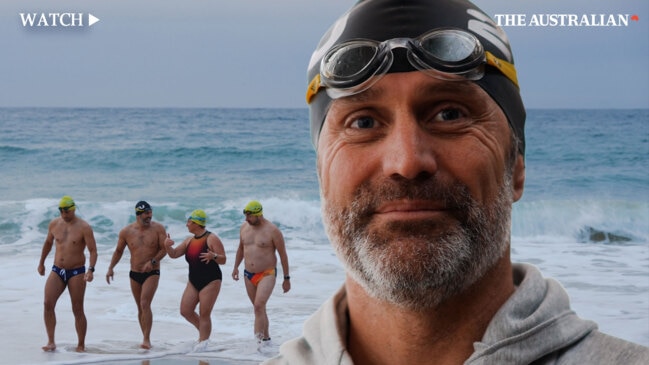
Deep in a frigid winter. On one of the shortest days of the year. At 6am. In darkness. There are countless descriptors of the prevailing conditions on this still, weekday morning on the shore of Sydney’s Botany Bay. None of them, however, seems to be a deterrent for the four swimmers who are expectantly wading into the 14-degree water before daybreak with not quite a jig, but close to it.
Ninety minutes from now, with the sun having risen on a spectacular blue-sky morning, they will emerge into the seven-degrees-but-feels-like-four-degrees air, wearing only swimsuits and smiles, and declare this a perfect swim. Right now, though, at this dark hour on this almost empty beach, their enthusiasm feels as startling as the cold sand underfoot.
“These mornings are everything to me,” says charity worker Kim Miller, whose easy laugh punctuates the pre-dawn silence as the foursome prepare to plunge into the water; they’ll stay inside the shark net – their only protection against whatever lies out there – until daybreak. “It’s my social [outlet], my mental health, my physical health.” As she speaks, a group of walkers stride along the bayside path in puffer jackets and beanies, trailed by two joggers wearing gloves, and a delivery man who considers the near naked swimmers in disbelief. Early morning exercise is no stranger to neighbourhoods everywhere. But why would you willingly, and regularly, strip down for a 4km cold water swim on a morning like this?
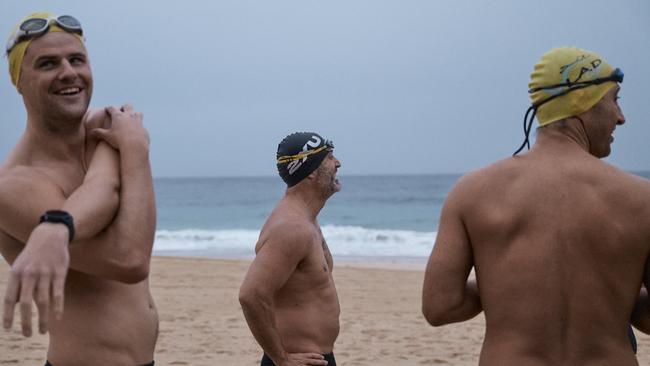
“The coffee that comes later,” is the group’s standard rejoinder. Their explanation is offered with a laugh, minimising the fact that, by the time they can enjoy the day’s first hot hit of caffeine in an hour and a half from now, several of them will be enduring their regular post-swim after-drop: shivering, teeth chattering, hands shaking for up to 20 minutes, among the smorgasbord of disconcerting side effects to which they say they are accustomed.
Because they have a far bigger goal than this morning’s latte. Each of them is about to embark on an international long distance swim that will be hard, cold and solitary – and proof of what otherwise ordinary people can achieve with buckets of hard work and determination.
A historic swim
“It is the loneliest of quests, and in the depths of a black night you are acutely aware that beneath you is often more than 50 metres of water.” Des Renford, the renowned long distance swimmer, was accustomed to the drawbacks of crossing the English Channel when he included these words in his 1992 autobiography. By then, the Sydneysider had swum the 32km span between England and France 19 times, a record for a while, and one that bestowed upon him the title King of the Channel.
“The winds can blow up to Force 5 or Force 6 without warning; the Portuguese men-o-war can hit like an electric current and the jelly blubbers are almost as bad. All of us who have swum the Channel have been bruised by collisions with half-submerged timber baulks. There are the hazards of thick clumps of seaweed, diesel fumes from your boat, oil slicks and mackerel spawn, school of fish that crash into you, attacks of cramp, and brushes with the accumulated flotsam and jetsam of countless years.”
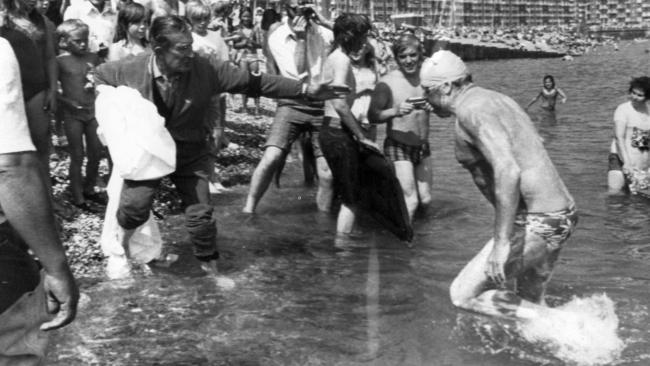
And yet in the decades since Renford penned this list of perils, which also included the currents and spring tides that toss a swimmer around like a cork, the shipping traffic and the fogs of blinding density, the allure of swimming this stretch of water has grown. Since 1875, when Captain Matthew Webb became the first person to swim the English Channel, close to 3000 have emulated his effort – most of them solo swimmers trailed by a pilot boat. This year more than 300 are hoping to add their names to that list. Around sixty per cent of them are likely to be successful.
“It’s a really historic swim,” says Sydney-based coach Vlad Mravec, who spends a good chunk of his working life helping everyday enthusiasts execute extraordinary feats. Among the many stretches his charges have swum – Manhattan Island, Cook Strait, the 34.5km between Ireland and Scotland – the English Channel is a sentimental favourite. Over the past decade, Mravec has trained 75 mostly unknown Australians to successfully navigate this small arm of the Atlantic Ocean. “If you say you swam from Newcastle to Sydney, Australians understand how far this is. But if you say this in England or the US, they say ‘Oh, whatever.’ But the English Channel? Everyone knows around the world that it’s something unique.”
Like scaling Mount Everest, the attraction seems to be, in part, because it’s there. “They say when you’ve got a goal and people think you’re crazy, that’s the right goal,” says Victor Pineiro, a Channel veteran who is among the group at Botany Bay this morning.
-
“Every time you tell people what we do, they think you’re crazy.”
-
Why swim the English Channel?
An IT specialist by day, he conquered the English Channel in 2019, the North Channel in 2022 and California’s Catalina Channel in 14 hours last year. Next up is a swim of up to 31 hours from Ireland to the Isle of Man. Why? “Because it’s never been done before.”
Everyone has a reason for taking the plunge. For Kim Miller, it began with curiosity. Now 46, she had not swum in 33 years until she found herself back in Australia from Vietnam in December 2020, mid-pandemic, when she was working remotely. “I needed something else in my life… I started going for a walk along the beach and saw a group of ocean swimmers and asked them one morning what I needed to be able to do to join them and they said ‘Swim’ and it just went from there.”
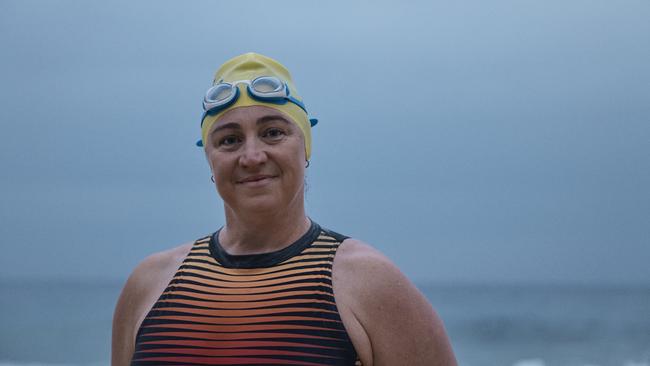
For Christian Renford, his presence in the water this morning is personal. At 49, he has spent much of his life immersed in sport. CEO of Athletics NSW, he’s a keen weekend swimmer. He is also Des Renford’s grandson, and this month he hopes to establish a record when he enters the water near Dover.
Should he reach France, he is likely to become the first third-generation swimmer to have crossed the Channel, following his famous grandfather, and then his uncle Michael Renford who completed the swim in 2007. But it’s not just his lineage that stands out. If he lasts the distance, Christian Renford, a middle-aged weekend freestyler from Sydney, will have made another mark, one that is more about resolve than genetics.
Mastering the long swim between France and England may be an exercise in endurance, but it can also be conquered by swimmers who, dedication aside, are essentially hobbyists. “It’s what Pa used to say, ‘Anyone can swim the Channel within reason’,” says Renford, quoting his late grandfather. “If you make the commitment and do the work it’s actually achievable.”
How long does it take?
Christian Renford has few memories of his grandfather – ranked the nation’s greatest long distance swimmer by the Sport Australia Hall of Fame – as an athlete. Born during one of Des Renford’s Channel swims in 1974, he was six when his grandfather retired from Channel swimming.
A former butcher, bookie and barman, Des Renford was 43 when, in 1970, he became the first Australian to cross the English Channel from England to France (Australian Linda McGill had swum the Channel from France to England three times in the 1960s). With a late start to marathon swimming, his debut became one highlight in the long list of long swims that followed: 37km around Moreton Bay in 1973, and 93km from Watsons Bay to North Wollongong the following year – a herculean effort for which he spent more than 27 hours in the water.
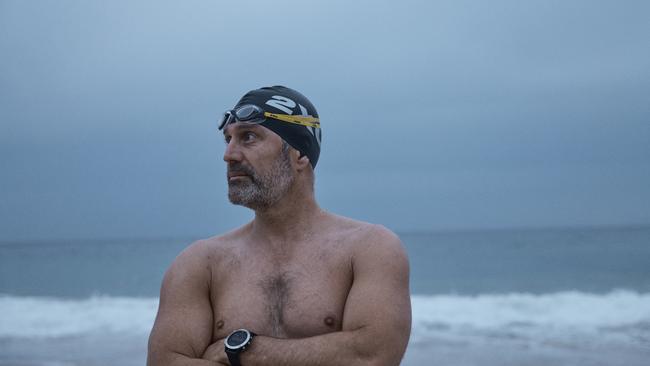
It was the English Channel, however, with which Maroubra’s Des Renford became synonymous. Between 1975 and 1980, in three separate years, he swam the Channel three times in a season. In 1975 alone, he conquered the stretch three times in just four weeks, capturing the King of the Channel title for most swims by a man.
In 1980, when he was well into his fifties, Renford set out for a final crossing. The previous year, Englishman Michael Read had won the King of the Channel title, which had been Renford’s since 1975. “It becomes a love affair,” says Read, now 83, who would go on to swim the Channel an astonishing 33 times. (“Having done 19, I decided just to give myself a buffer.”)
Read was no fan of the swims themselves. “You never enjoy anything like that,” he says. “But you enjoy all the pleasure afterwards.” That included capturing the coveted King of the Channel title, which Des Renford was determined to reclaim. So the Sydneysider set himself a massive target: three Channel crossings in less than a fortnight.
On the night of August 24, 1980, he embarked on his record 19th swim, battling a strong breeze. By the time he arrived in France 14 hours and 54 minutes later, Renford had spent more than 43 hours in total swimming the Channel three times in 13 days. He had lost 10kg and was so exhausted he could not lift his hands to comb his hair. He announced his retirement from Channel swimming shortly afterwards, having just turned 53.
Christian Renford has almost no memory of that momentous time, beyond some vague recollections of his grandfather, who died of a heart attack at 72. But the sense of accomplishment and the spectre of mastering something big seeped into his consciousness, and now it’s directing a lot of his waking moments. “I think he wanted to leave his mark,” he says of his grandfather’s 19 Channel swims, “and it’s a little bit of my motivation… You just don’t want to be a footnote in history.”
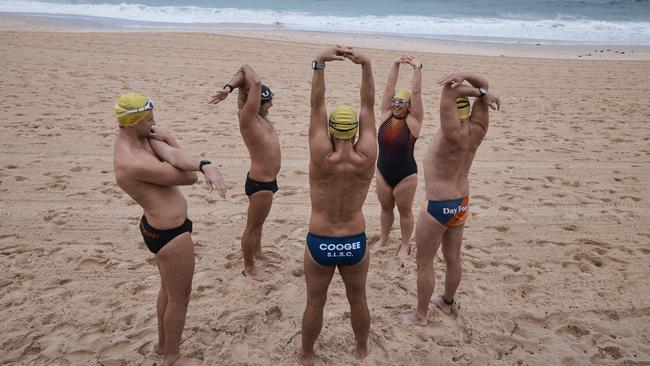
For next weekend’s planned Channel swim, he has trained for almost two years: up well before the sun most mornings, two hours of laps at a suburban pool, ice baths, weekly cold water swims, and a long ocean swim on the weekend regardless of the weather. One recent Saturday, while most Sydneysiders shivered in the cold and rain, he diligently swam in the sea for five long hours. The next weekend he tackled the 20km swim prescribed by his coach Vlad Mravec, an eight hour effort – after which he had to remain awake to celebrate his wife’s birthday.
Is it safe to swim across the English Channel?
“I can stay out there for hours now,” Renford says of the icy bay water into which he is about to plunge. He’s stripped down to his budgie smugglers, in line with Channel swimming rules which also dictate, among other things, that no one can touch a competitor mid-race, which in turn means that drinks are dolled out, mid-swim, via a piece of rope. Apart from a swimming cap, the only other thing Renford wears to begin this day is a small headlamp.
It is still so dark on this Tuesday that from the shore it’s hard to discern the shark net that will confine the group’s swim until daylight. It is so early that, across the bay, the curfew is still in place at Sydney airport and without the roar of jet engines the air feels empty.
Before the first international flight has even lowered its landing gear, Renford and his co-swimmers are in the water, Kim Miller’s distinctive laugh a sonic guide in the murky distance. A full moon provides a patch of light as they begin to follow the edges of the shark net enclosure, freestyling long laps in pairs for 45 minutes. Two other casual swimmers plunge into the bay in the last minutes of darkness, but neither lasts in the water for longer than a few minutes.
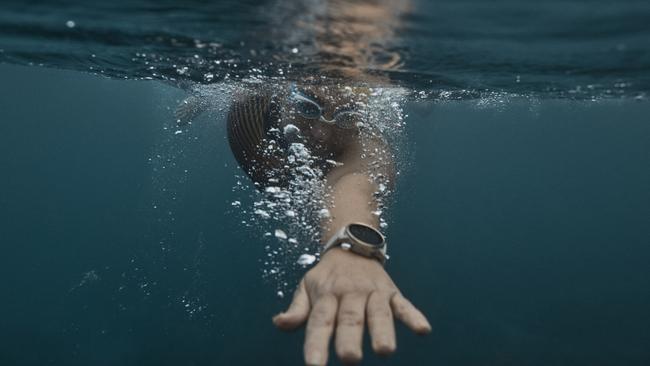
As daylight finally settles in, the Channel swim trainees move beyond the shark net and swim more kilometres up and down the bay, their pace surprisingly brisk.
Renford loves the serenity of being out here, phone-free, and, when the sun has risen, the seals and dolphins that he sees more often than you’d expect in the waters around a big city. “You just lose track of time and if you find that groove, feeling the rhythm of your stroke and the waves and the ocean, next thing you’ve lost 60 minutes of your life and you look up and you think this is just a brilliant way to spend your time,” he says. “You look around and think, ‘Why wouldn’t everybody want to do this?’”
It’s not exactly what awaits him in the English Channel, though.
“You can’t even see the end of your fingers when you’re in the thick of it. Can’t see anything, lots of ships, a chunk of the time you’re swimming in the dark anyway,” he says.
-
“I’m hearing stories where France could be 200m away and that can take you two hours to swim because you’ve effectively got a current that’s taking you parallel to the coast.”
-
How to prepare
None of which, he stresses, is a turn-off. Next weekend, after loading up on carbohydrates the night before in Dover, with luck he’ll be in the drink for around 13 hours – roughly halfway between the fastest recorded Channel swim (a little under seven hours) and the slowest (more than 28 hours). Every 30 minutes he’ll down a mix of maltodextrin and cordial thrown to him in a bottle, and maybe a bit of warm Milo to help maintain his core temperature.
Leaving from England in those empty hours between midnight and dawn, if all goes to plan he’ll be on the shore of France by late afternoon. Apart from exhaustion, the exact hour is of little concern. “No one really cares about the time that you are going to do because it’s so condition-variable… It’s the attainment; it’s the crossing of the Channel.”
For a pursuit that is not for everyone, the £4000 ($7800) entry fee prohibits many more from competing. But for those who are able to summon the cash, the determination and strength, just aiming for success brings benefits.
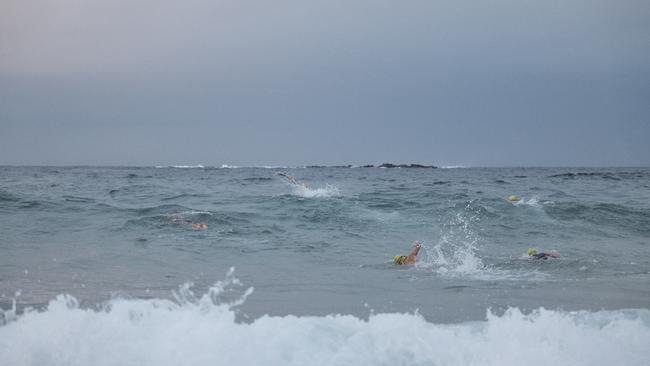
“If someone can go in the water in the morning, six o’clock, it’s cold, and no one is actually paying them to do that, they are doing it for themselves and they believe they can achieve something and they are growing as a human, they are happier,” says swimming coach Vlad Mravec. “They actually learn during the preparation what they are able to do or not able to do. They start to increase their belief they are someone or something in the world.”
At the warm end of a long swim, Kim Miller, dried, tracksuited and sipping a hot coffee, agrees. “My whole life hasn’t been spent seeking out challenges like this,” she insists. “People who probably know me from five years ago probably wouldn’t recognise me now.”
Apart from a single moment of fear – “the enormity of it and can I do this thing I’ve been training for for two years?” – rising early for a long cold swim has brought a multitude of benefits. “It’s the first time in my life I’m proud of what my body can do. Because I can do incredible things.” And she smiles.
Two years of training almost every morning have reaped many benefits, but mostly she has seen the value of grit. “This is the most impactful thing that I will ever do,” she says delightedly. “If I can do this, I can do anything.”



To join the conversation, please log in. Don't have an account? Register
Join the conversation, you are commenting as Logout